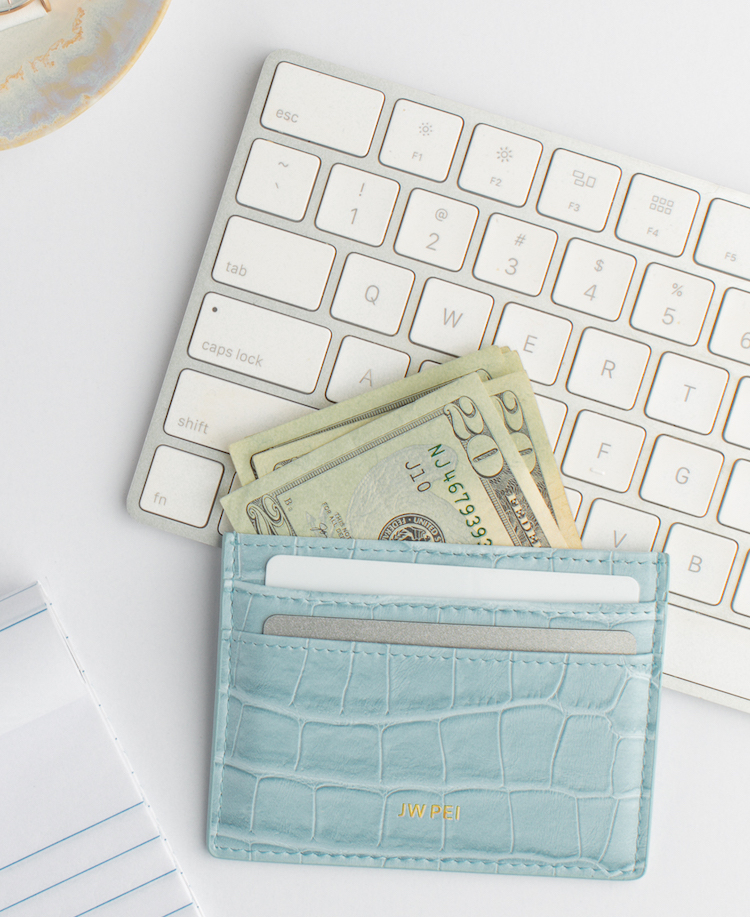
Living paycheck to paycheck often has a negative connotation—but it doesn’t have to. If we reset our money mindset, it can actually be an opportunity. Whenever payday comes, it’s a chance to check in on our financial picture, make positive changes, and set new habits. Whether your paycheck comes in regular intervals or your income streams are less predictable, payday routines are important.
2. Check on automatic transfers and payments
Automating my savings and investing has been one of the most helpful changes I’ve made to my financial wellness. The less thought and time we put into these actions, the more likely they are to stick over the long term. I have transfers to savings, investment accounts, and debt bill pays all ready to go on payday. That way, by the time I’m reviewing my finances on payday, a number of transactions I was expecting has already taken place.
I’m also trying to better understand what I call my “micro-bills.” These are those smaller expenses like recurring app payments, streaming services, or memberships. They add up and can be hard to find a way to “group” or think about in aggregate. Apps like Truebill and other recurring payment analyzers are one way to more easily see recurring payments. Some will even help you take the first step in cancelling the ones you don’t use. I use payday review subscriptions and clean up any unnecessary charges.

Source: Social Squares
3. Scan my accounts for unexpected charges
The more digital our world, the more we expose our payment tools to fraud or unexpected charges. I’m pretty cashless (especially nowadays), meaning my account ends up littered with small dollar expenses. One $10 charge here for lunch, $2.75 for coffee—these are easy to glaze over, especially if I don’t give them a proper review periodically. Once a month would be too overwhelming, so the biweekly scan to be sure I recognize all my charges is one important way to protect against fraud.
Similarly, be sure to take advantage of newer automatic alerts offered by your bank or credit card company. It’s now pretty easy to tailor spending notifications, so you can get a quick text or email if a charge falls outside the parameters you specifically set.
4. Find a job for every dollar
Sometimes called “zero-based” budgeting, on payday, I find a job for every dollar I earn. What this looks like for me is knowing that my savings and investment payments come off the top first, followed by bills. What’s left is not only “fun money” but also money that gets allocated toward smaller spending goals, like a closet investment piece I may be saving for. I might also choose to put a larger portion of a paycheck toward any debt. This feels more manageable if I only have to think about the next two weeks and consider if I have any potential unplanned expenses.
A paycheck-by-paycheck view of budgeting can also be a helpful approach if a monthly view feels overwhelming. This can also work well if you’re in a home with multiple income streams. Rather than saving an entire paycheck for a big expense like rent, setting aside a portion per paycheck might feel more manageable.

Source: Béis
Managing a freelance paycheck
Freelance friends, paycheck management looks different if you are the boss of your own income streams. You may want to consider managing your paydays even more frequently. You’ll also have to do more legwork managing your freelance finances, taxes, and other longer-term savings or expenses. In this case, it’s even more important that you have a team of financial professionals that can advise you.
Unpredictability means that you might need to build a heftier emergency fund. You may also need to budget and understand your expenses with a little bit of a longer view, understanding even more specifically how seasonality affects your revenue and spending. In the short term, be sure that you are thinking about taxes and expenses with every inflow. It can be so easy to think you’ll “put the next” check toward your big expenses, especially when you’re first starting out. Treat your work like the bustling business it is from day one.





